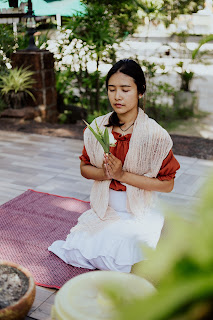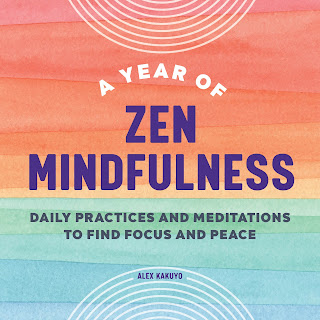Faith is a dirty word in American Buddhism. When teachers discuss having faith in Buddha and his teachings, for example, there's a lot of hand-wringing involved.
We're quick to explain that faith in Buddhism is more akin to trust, and practitioners don't need to believe anything that doesn't resonate with them.
This is good, correct teaching. In fact, one of the high points of Buddhist doctrine is that it encourages discourse. It encourages people to be skeptical and ask questions.
And no one is required to believe something that doesn't sit well with them. I'll say it again, this is a good thing.
However, if we visit dictionary.com, we find two definitions of faith:
1. confidence or trust in a person or thing2. belief that is not based on proof
The type of faith that's most often discussed in Buddhism is the first definition. We ask questions, we experiment with the teachings, and we develop faith in them based on their efficacy.
I've experienced this in my own practice. In the beginning, I wasn't sold on the idea of Right Speech, the third tenet of the Noble Eightfold Path. I spoke to people with a mix of sarcasm and snide remarks. Every conversation was a chance to show how smart I could be at the expense of others.
My behavior left me feeling insecure and it was ultimately self-destructive. I lived in constant fear that my clothes, my job, or even my hobbies would leave me open to someone else's verbal attacks. I didn't have friends. I had people that I enjoyed being miserable around.
So, when I learned about Right Speech, which states our words should be used to uplift and support the people around us. I was skeptical. But I gave it a try. I bit my tongue and kept my clever, mean-spirited comments to myself. At times, I gave people random compliments just to see what would happen.
Funny thing, when you're nice to people, they tend to be nice back. Who knew? As I learned to use my speech correctly, I began to feel more comfortable around people. I enjoyed conversations as opposed to simply trying to survive them. Over time, I became a believer in Right Speech
To put it another way, my skepticism led to experimentation. My experimentation led to trust. And over time that trust became faith.
This is a fine thing. But as I continue to walk the Buddhist path, I'm realizing that sometimes it's not enough. Sometimes we have to rely on that second type of faith, we have to believe things in the absence of proof. Because we can't survive if we don't.
Buddhist scriptures say that humans are basically good. They say we have a pure, undefiled mind, a Buddha mind, which enables us to realize enlightenment. And they say that no one is beyond saving, no matter the terrible things that they've done.
This is called grace. And the Buddhist understanding of grace is beautiful, but it doesn't satisfy my need for justice.
Because I want someone to pay for the 5 million people who've died of Covid-19. I want restitution for my friends who ruined their bodies fighting overseas. I want to punish corporations that ruin our biosphere. And in the absence of justice, I want revenge.
I want to burn it all down. I want to scatter the ashes. I want to salt the earth so that nothing like humanity ever grows again. There is darkness in me.
At times, that darkness clouds my vision so I can't see the goodness of our world. It's like someone flipped a switch, and turned off the sun.
In those moments, I cry out to Buddha. I turn to my faith; my superstitious, unfounded faith, and I choose to believe.
I choose to believe that people are good. I choose to believe that our world is worth saving. I choose to believe that no matter how badly we screw up, one day we'll set things right.
I believe these things blindly, stubbornly. And I hold onto these beliefs when the evidence says I shouldn't. I have blind faith.
And as our world descends into chaos, my faith sustains me. It helps me walk the Buddhist path; speaking kindly to others, helping my neighbor with chores, and giving my animals the best life I can.
Because there is goodness in the world. There is compassion in every person I meet. And when I'm blinded by darkness, Buddha shows me the light.



Alex, this resonates deeply with me and moved me too. I have an almost paranoid aversion to faith of the religious kind but often look at humanity in despair. You offer the prospect of faith based purely on belief, hope, a positive perspective:...
ReplyDeleteThank you.
ReplyDeleteThank you! I shared this with someone who really needed to hear this right now. 🙏 Amitābha
ReplyDeleteAnd i needed it too 😁
My desire to understand more about Buddhism has always been strong. This is an excellent article. I am a huge lover of Thai Buddhas and would appreciate it if you could write about them as well. Thanks
ReplyDelete